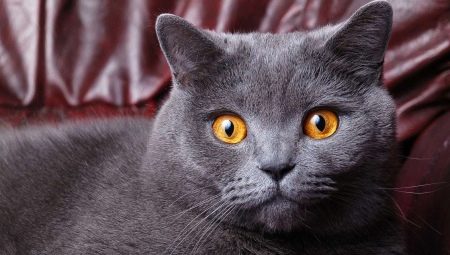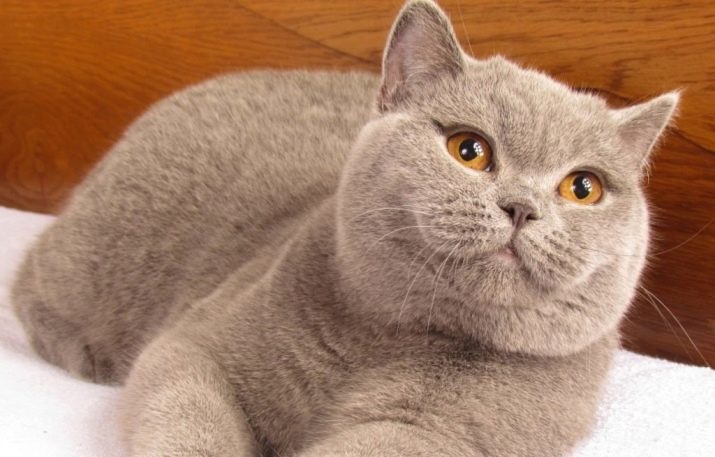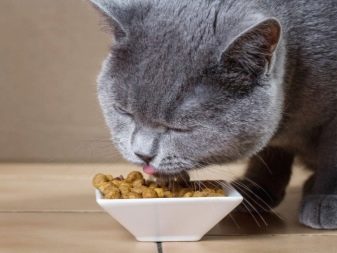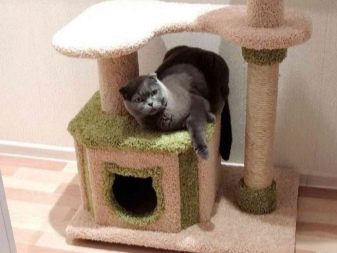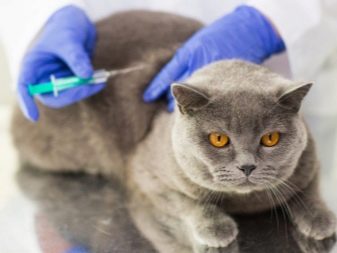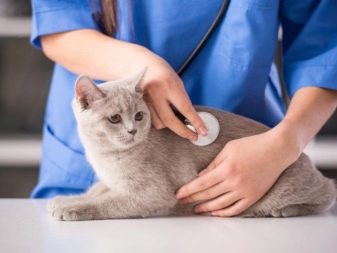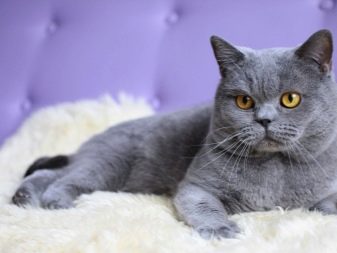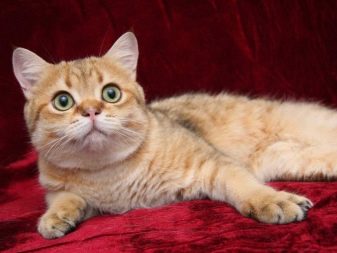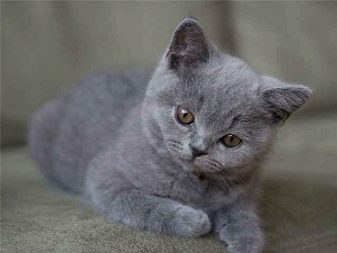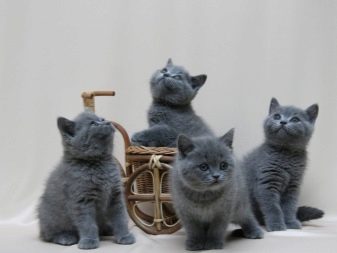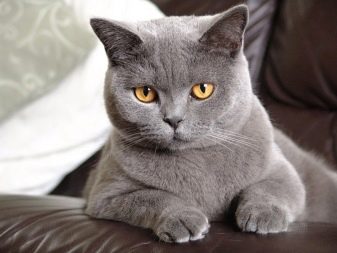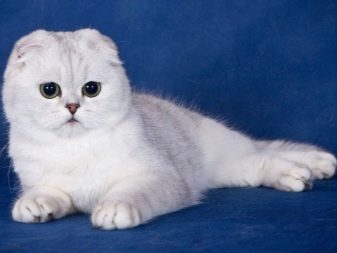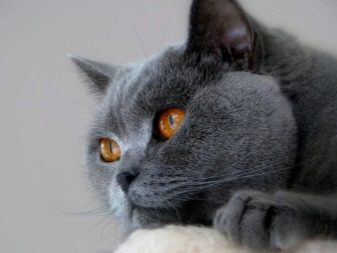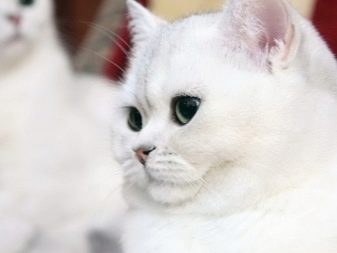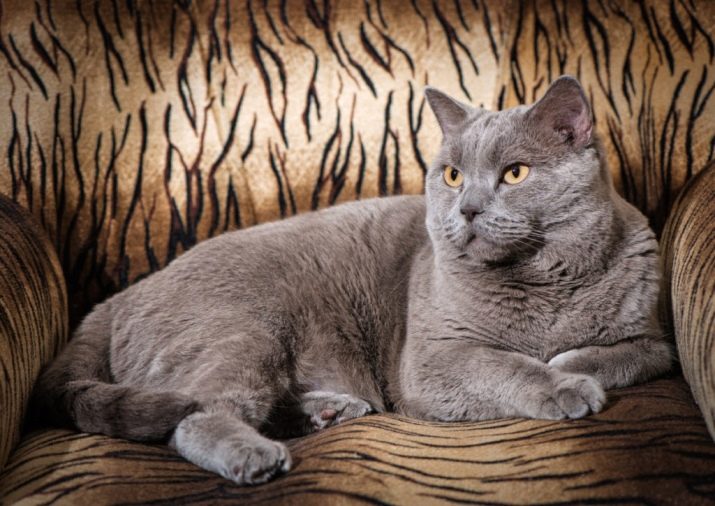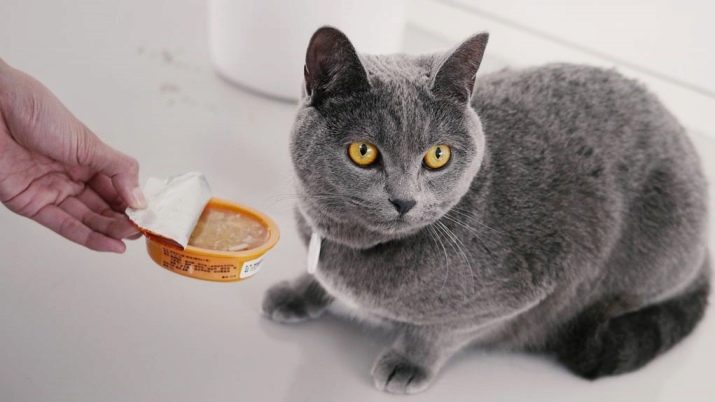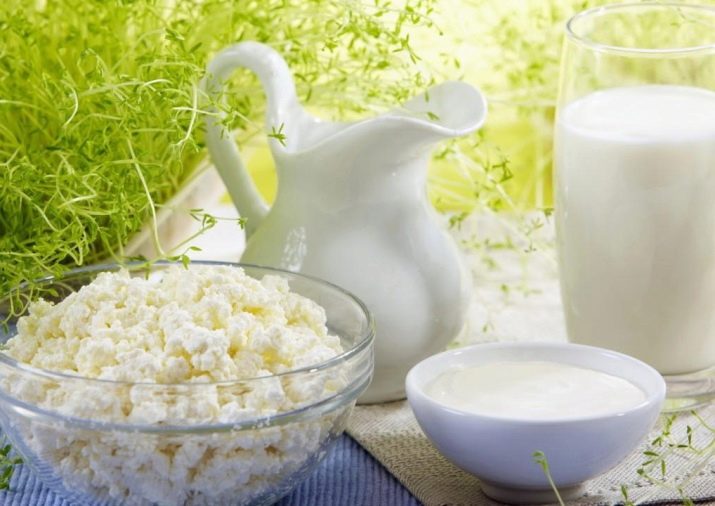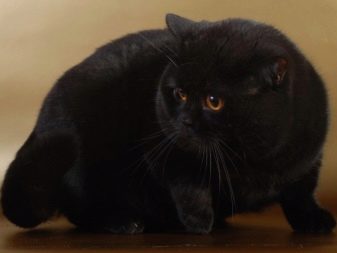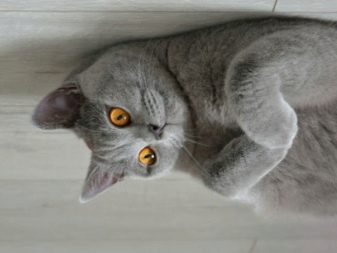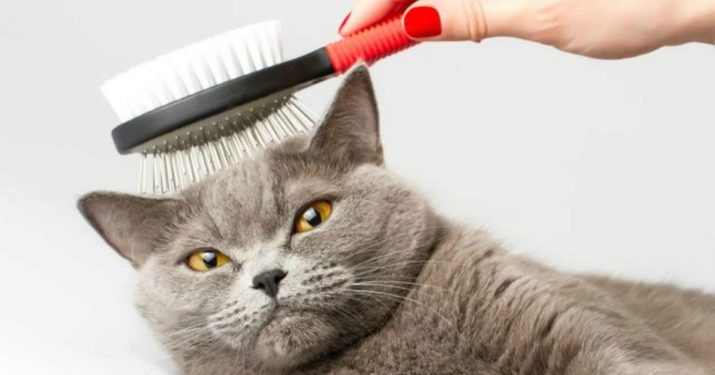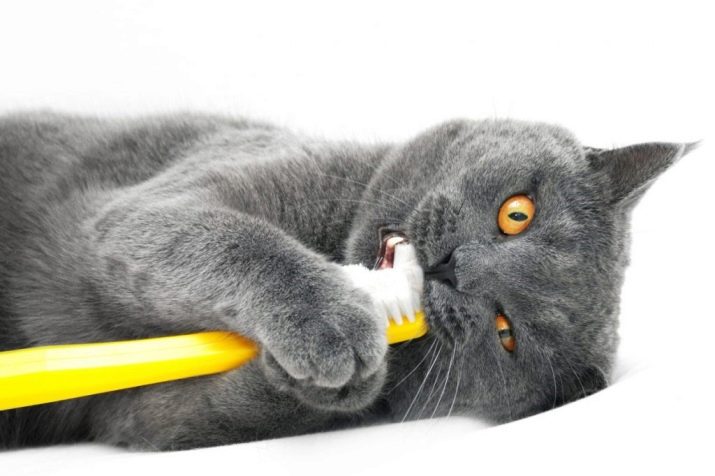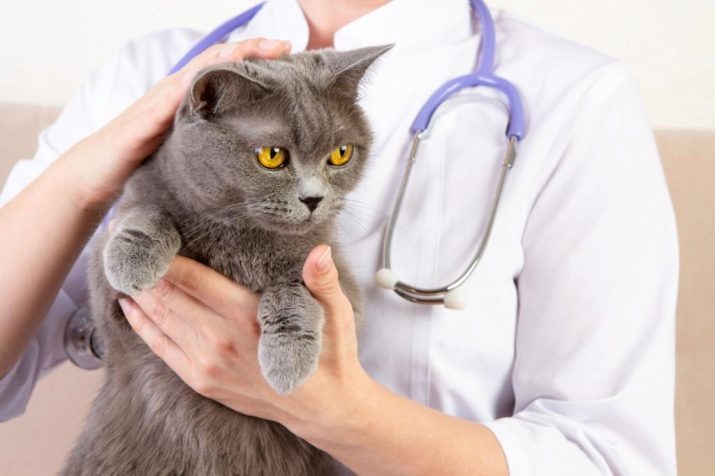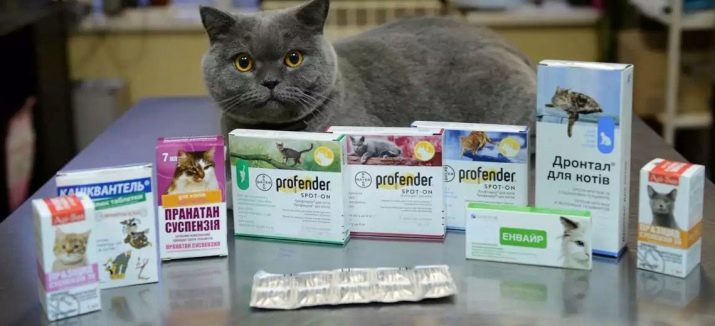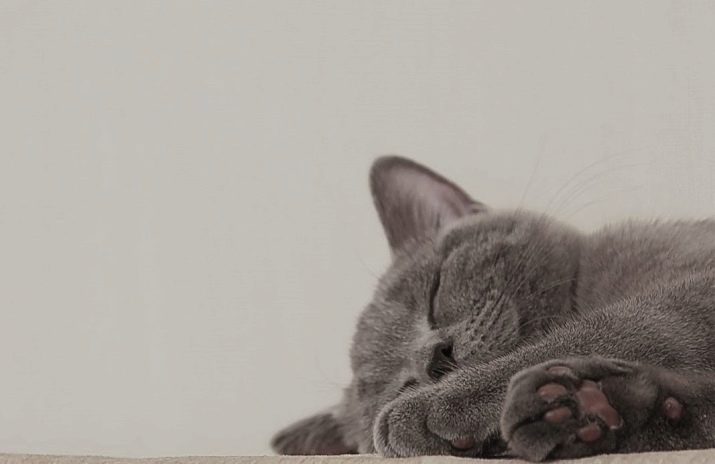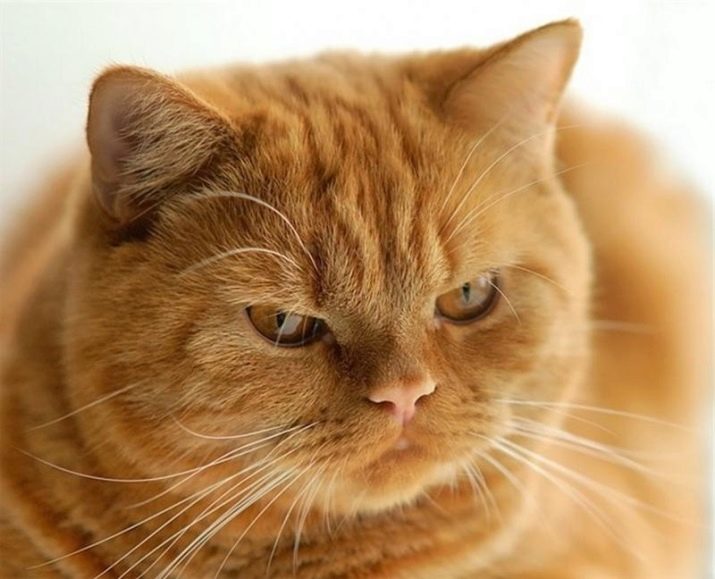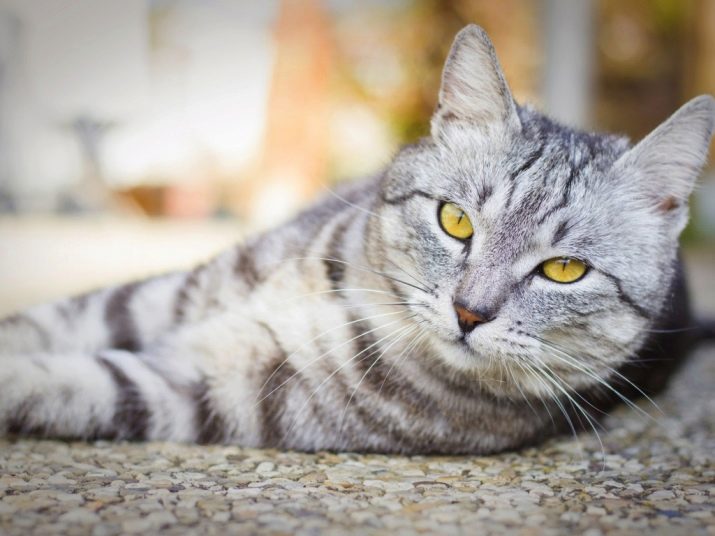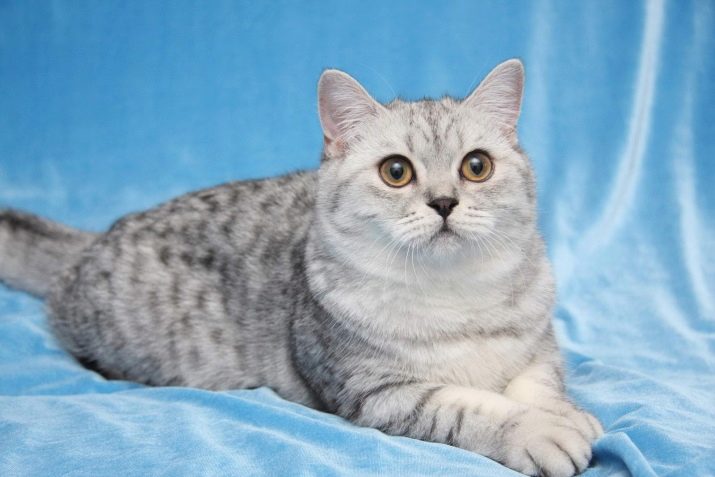There have been legends about British cats for a long time that explain the origin of these cute creatures. Most versions agree that the ancestors of this breed on the islands of Great Britain were brought with them by Roman legionnaires during their conquests. However, feline scientists argue that the British breed was bred in the UK no earlier than in the XIX century. The truth, as always, is in the middle: the cats were indeed brought by Roman ships, they settled in England, their wool became thick enough with time to withstand the fogs and rains. As for the breed, its distinctive features were formed only by the XIX century and at the first cat show, which was held in London, cats with a plush coat became the recognized favorites of British aristocrats. The British did not cross these cats with other breeds, so the British cat has kept its genetically determined data for decades.
What determines the duration of life?
The life span of a British breed depends on a combination of factors - it is not a secret to anyone that street cats do not live even up to 10 years, and those individuals who live at home can live to 15–16 years. The lifespan of a domestic cat depends on the following nuances:
- balance and regularity of nutrition;
- timely vaccination;
- prevention of helminthiasis;
- regular veterinary inspection;
- obesity prevention, continuous monitoring of the teeth, heart, blood vessels;
- timely castration or sterilization of a pet;
- the presence of physical activity and active lifestyle of the pet;
- good care, providing comfortable living conditions and pet hygiene;
- no stress factors and situations.
Any breed, including the British one, contains not only positive properties, but also a genetic set of features, which consists in susceptibility to certain diseases. It is known that the British do not suffer from oncological diseases, but they are prone to obesity, diseases of the gastrointestinal tract and the cardiovascular system. In addition, the breed identified weak kidneys, liver and musculoskeletal system.
To extend the years of life to his furry pet, the owner must take into account the peculiarity of the breed and keep his cat or cat properly.
The duration of the life of your pet, among other factors, indirectly affects the color. Traditionally, the cats of the British breed were gray, however, now we can see various variants of color, which were bred by breeding. There is a pattern in which it is revealed that the more exotic a Briton is, the more he is prone to diseases, even those that were not originally characteristic of his breed.
Explaining this pattern to the science of genetics is quite simple - if the genes responsible for coat color and the genes responsible for health are close, they enter into so-called linked inheritance. The resulting offspring in this case inherits not only the color, but also the disease - poor hearing, vision (up to the development of blindness), skin dermatitis, deformational changes of the skeleton, a tendency to the appearance of benign and malignant tumors.
Average
Cats and cats of the British breed live for an average of 15–16 years, but this is possible only with proper care. If there are errors in the diet or there are other adverse factors, on average, the British live up to 11-12 years.
There is a scientifically proven opinion that if an animal has been neutered or sterilized, its life expectancy increases by an average of 2.5-3 years. In addition, it is believed that those individuals who have a lean body structure, live longer than their larger and plump counterparts. The British breed, unfortunately, does not belong to thin specimens, which means that they do not have to rely on a couple of extra years of life. British cats are inactive and genetically prone to obesity.
If you do not give this circumstance due attention, then the pet's life span will be significantly shortened due to the fault of the owner, who improperly cares for his furry friend.
Excessive stress loads also shorten the life of the British breed of cats. For this reason, they are not allowed to go outside, and walks are arranged in an isolated courtyard of the garden, where there is no access for other dogs, cats, and there is no threat from moving cars or people. Sharp flashes of light, sound signals, attention of strangers - all this causes stress for the British. If you protect it from such effects, then with proper care a cat of this breed can live for more than 15 years, as there are data on long-livers who have reached even 20 years of age. If we compare the age of a cat and the age of a person, then it can be assumed that 15 years of feline life equals 75 years of a person's life, therefore at the age of 8 years a Briton is already considered a middle-aged individual, requiring special care and nutrition.
How to care?
Proper care of the British breed of cats not only prolongs the life of the pet, but also makes it comfortable. The basic principles of care are as follows.
- Proper nutrition. Considering that British blood cats have weak livers and kidneys - moreover, sterilized cats and neutered cats require special attention, then the ration for the animal is based on these features. You can feed your pet with natural food or balanced industrial food.
The basis of natural nutrition is feeding the cat meat chicken, rabbit, beef or veal, lean lamb.
Before use, the meat must be frozen at low temperatures for at least two weeks in order to destroy the eggs and larvae of worms. In addition to protein, the British need and fiber, so the diet should be cooked vegetables and fruits. From carbohydrate products allowed to receive cereals, boiled from any cereals, except oatmeal and manna. To improve the work of the intestine, it is allowed to receive low-fat cottage cheese and kefir grades. In the form of a source of minerals, a cat can be given in small quantities a boiled yolk of an egg.
- Castration and sterilization - if you do not plan to engage in breeding a British breed, but keep your pet for the soul, then at the age of 7–8 months, the kitten needs to be castrated or sterilized. Such a procedure will save the British from the regular physiological stresses associated with the breeding instinct, as well as protect them from the deterioration of his health and reduced life expectancy.
- Hygiene - an important factor that affects all areas of the cat's life and requires regular and rigorous implementation. Weekly Britons should be combed so that the pet does not clog the stomach with hairballs if he is forced to lick himself. Every month the cat needs to cut its claws, and it is required to pay attention to the integrity and health of the nail plate. Wipe the eyes of the animal with a soft cloth moistened with warm water - this should be done at least once a week. Auricles are cleaned 1 time in 2 weeks, the procedure is performed using a cotton wick.
Cats of the British breed, as a rule, suffer from tartar, while their gums bleed and their teeth become loose. Oral hygiene requires regular teeth cleaning and gum care; any veterinarian will be able to teach you this, as long as the procedure is performed regularly.
The pet should have its own sleeping place, a toilet tray and dishes for eating.
All these items need to be kept clean. Pet hair needs to be inspected for fleas from time to time, and if you suspect that they appear, you will need to immediately conduct insecticidal treatment of pet litter and wool.
- Veterinary inspection - this procedure should be carried out regularly, and for young cats it is enough to visit the doctor once a year, and after 8 years of age, you should go to the vet 2 times a year. During the very first visits to the vet, the kitten is given all the necessary vaccinations - this is the only way you can protect your baby from dangerous diseases. In addition, the pet will be prescribed anthelmintic drugs in order to prevent helminthiasis.
British cats are not picky and do not require any special conditions for the content.
When choosing a sleeping place for them, try to arrange it so that the pet with its thick and dense coat is not hot, but it is not necessary to place it in the draft. Equip small kittens with a place where they could play, place toys there and install the scratching post that they need to maintain claw health and develop legs.
The Oldest British Cats
Despite the fact that the life of a British cat, as a rule, does not exceed 20 years, absolutely unique events occur, which are confirmed by long-livers in the world of cats. So, at the end of 1999, an entry was made in the Guinness Book of Records about the cat Spike, a resident of Great Britain. This red-white representative of his breed became famous for having celebrated 29 days of birth and for all this time he managed not to lose a single tooth. Moreover, an amazing cat was able to survive the incident with a large rottweiler, which was bitten by Spike.
The owner of the cat believes that the cat owes its longevity to a natural natural remedy - aloe vera gel. Spike was treated to this gel every day, and besides, his daily diet included omega-3 fatty acids, which he received by eating ocean fish and trout. In addition to natural food, the owner fed the cat and a balanced feed of industrial production. Spike was always active and moving cat and spent the whole day walking around the territory of the home garden.
In 2001, according to eyewitnesses, the cat celebrated its 31st birthday, becoming one of the oldest representatives of the cat family on our planet.
Another unique example of a long-lived British breed of cats is a gray-spotted cat named Ma. This person also lived in the UK and became famous for being the winner of cat shows, and besides, she perfectly caught mice. The life span of this cat at the time of 2001 was 32 years. The long-lived woman was also listed in the Guinness Book of Records and it is possible that Ma would have lived for some time, but because of a serious illness, the hosts were forced to put their cat to sleep.
The described cases are not isolated - long-livers in the feline family are also found in other breeds. It should be assumed that a good genetic heredity and proper care for a pet are a guarantee that he will be able to live a long life. Take care of your pets and let them please you with their presence for as long as possible.
Video review of British cats, see below.
